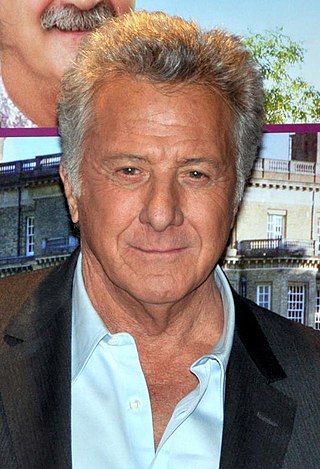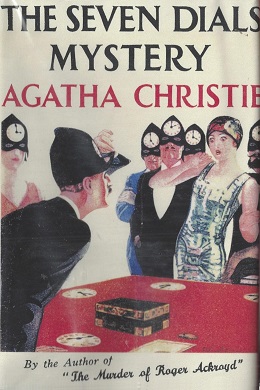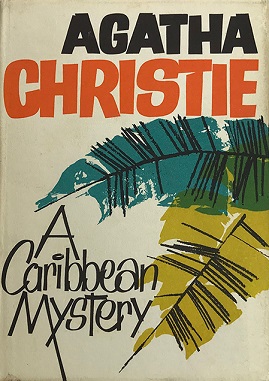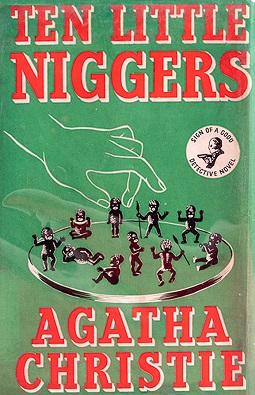
Dame Agatha Mary Clarissa Christie, Lady Mallowan, was an English writer known for her 66 detective novels and 14 short story collections, particularly those revolving around fictional detectives Hercule Poirot and Miss Marple. She also wrote the world's longest-running play, the murder mystery The Mousetrap, which has been performed in the West End of London since 1952. A writer during the "Golden Age of Detective Fiction", Christie has been called the "Queen of Crime"—a moniker which is now trademarked by her estate—or the "Queen of Mystery". She also wrote six novels under the pseudonym Mary Westmacott. In 1971, she was made a Dame (DBE) by Queen Elizabeth II for her contributions to literature. Guinness World Records lists Christie as the best-selling fiction writer of all time, her novels having sold more than two billion copies.

Dustin Lee Hoffman is an American actor and filmmaker. As one of the key actors in the formation of New Hollywood, Hoffman is known for his versatile portrayals of antiheroes and emotionally vulnerable characters. He is the recipient of numerous accolades, including two Academy Awards, four BAFTA Awards, five Golden Globe Awards, and two Primetime Emmy Awards. Hoffman has received numerous honors, including the Cecil B. DeMille Award in 1997, the AFI Life Achievement Award in 1999, and the Kennedy Center Honors Award in 2012. Actor Robert De Niro has described him as "an actor with the everyman's face who embodied the heartbreakingly human".

Dame Vanessa Redgrave is an English actress. Throughout her career spanning over six decades, Redgrave has garnered numerous accolades, including an Academy Award, a Tony Award, two Primetime Emmy Awards and an Olivier Award, making her one of the few performers to achieve the Triple Crown of Acting. She has also received various honorary awards, including the BAFTA Fellowship Award, the Golden Lion Honorary Award, and an induction into the American Theatre Hall of Fame.

The Seven Dials Mystery is a work of detective fiction by Agatha Christie, first published in the UK by William Collins & Sons on 24 January 1929 and in the US by Dodd, Mead and Company later in the same year.

Erika S.L. "Kika" Markham is an English actress.

At Bertram's Hotel is a work of detective fiction by Agatha Christie and first published in the UK by the Collins Crime Club on 15 November 1965 and in the US by Dodd, Mead and Company the following year. The UK edition retailed at sixteen shillings (16/-) and the US edition at $4.50. It features the detective Miss Marple staying at an upmarket hotel which is at the centre of a mysterious disappearance.

A Pocket Full of Rye is a work of detective fiction by Agatha Christie and first published in the UK by the Collins Crime Club on 9 November 1953, and in the US by Dodd, Mead & Co. the following year. The UK edition retailed at ten shillings and sixpence (10/6) and the US edition at $2.75. The book features her detective Miss Marple.

A Caribbean Mystery is a work of detective fiction by British writer Agatha Christie, first published in the UK by the Collins Crime Club on 16 November 1964 and in the United States by Dodd, Mead and Company the following year. The UK edition retailed at sixteen shillings (16/-) and the US edition at $4.50. It features the detective Miss Marple.

And Then There Were None is a 1974 mystery film and an adaptation of Agatha Christie's best-selling 1939 mystery novel of the same name. The film was directed by Peter Collinson and produced by Harry Alan Towers. This was the second of three versions of Christie's novel to be adapted to the screen by producer Harry Alan Towers. Two film adaptations were previously released. An American made-for-television version was broadcast in 1959. Towers produced a third version in 1989.

Murder on the Orient Express is a 1974 British mystery film directed by Sidney Lumet, produced by John Brabourne and Richard Goodwin, and based on the 1934 novel of the same name by Agatha Christie.
Lady Eileen "Bundle" Brent is a fictional character of two of the Agatha Christie novels, The Secret of Chimneys (1925) and The Seven Dials Mystery (1929), described as a spirited "it girl".

Miss Marple, titled Agatha Christie's Miss Marple in the series, is a British television series based on the Miss Marple murder mystery novels by Agatha Christie, starring Joan Hickson in the title role. It aired from 26 December 1984 to 27 December 1992 on BBC1. All twelve original Miss Marple novels by Christie were dramatised.
Kathleen Jeannette Halton Tynan was a Canadian-British journalist, author, and screenwriter.

How About You is a 2007 Irish film directed by Anthony Byrne. The film is based on a short story sometimes published as "How About You" and sometimes published as "The Hard Core" in This Year It Will Be Different, a 1996 collection of short stories by Maeve Binchy. It tells the story of a young woman named Ellie who is left in charge of the residential home run by her older sister, during Christmas period. Most of the residents have gone with their families during the holidays, but four residents, known as the hardcore, remain. Their behaviour will cause much trouble and will lead to the residence facing closure.

The Old Swan Hotel in Harrogate, North Yorkshire, England, is part of the Classic Lodges group.

And Then There Were None is a mystery novel by the English writer Agatha Christie, who described it as the most difficult of her books to write. It was first published in the United Kingdom by the Collins Crime Club on 6 November 1939, as Ten Little Niggers, after an 1869 minstrel song that serves as a major plot element. The US edition was released in January 1940 with the title And Then There Were None, taken from the last five words of the song. Successive American reprints and adaptations use that title, though American Pocket Books paperbacks used the title Ten Little Indians between 1964 and 1986. UK editions continued to use the original title until 1985.
"Close Enough for Love" was the theme song from the 1979 film Agatha starring Dustin Hoffman and Vanessa Redgrave. The song has since become a jazz standard. It was composed by Johnny Mandel with lyrics by Paul Williams.

Colonel Archibald Christie was a British businessman and military officer. He was the first husband of mystery writer Dame Agatha Christie; they married in 1914 and divorced in 1928. They separated in 1927 after a major rift due to his infidelity and obtained a divorce the following year. During that period Agatha wrote some of her most renowned detective novels. Shortly after the divorce, Christie married Nancy Neele, and the couple lived quietly for the rest of their lives. Christie became a successful businessman and was invited to be on the board of directors of several major companies.

Rosalind Margaret Clarissa Hicks was the only child of author Agatha Christie.
















